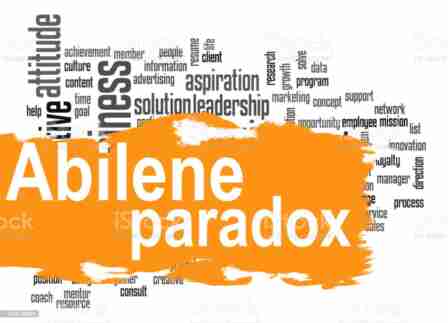Knowledge Management for Empowering Employees Psychologically
Today, knowledge is considered as the sole strategic source of competitive advantage in the world economy (Zack, 1999). To survive in today’s highly competitive environment, organizations must create new knowledge, distribute it and convert it to goods and services (Zafaryan et al., 2008). Organizations need to adopt a learning culture that empowers employees to contribute in order to develop unique and valuable capabilities which are the differently expressed forms of tacit knowledge and explicit knowledge (Nonaka and Takeuchi, 1986). Organizational effectiveness, innovation and organizational agility (Holsapple and Wu, 2011; Joshi et al., 2010) assist organizations in achieving competitive advantage through the management of the knowledge. Before the creation of new knowledge, its distribution and its implication for the development of goods and services which ensures the survival of organizations in cutthroat competitive environment. Through the effective management of the knowledge, organizations produce wealth. It is the process used by organizations to gain skills in the context of learning (internalizing knowledge), codifying those skills and knowledge (externalizing knowledge) and distributing/ transferring knowledge as defined by Nonaka and Takauchi (1995); Abtehi and Salavati (2005); Salajeghe et al. (2013). In order to go through these processes of knowledge management, employees who are in charge of these service production and delivery should be psychologically empowered.
What is Knowledge Management?
Knowledge management (KM) is the process where information is identified, organized, stored and shared with all stakeholders within organization. KM improves efficiency, innovation and decision making. KM is very important as it helps employees to access the required right information at the time of need. Besides that, KM can help organization in many ways, mainly for customer care, skill development, product innovation and problem solving.
There are number of advantages of KM in all types of organizations. Major advantages can be pointed as below-
1. Encourages collaboration
Study conducted by the College of Business, Gachon University and College of Global Business, Korea University in January 2020 found that knowledge sharing is significantly and positively related to team trust where the perception of collaborative technology moderated the relationship.
So KM enables collaboration and more effective exchange of ideas, leading to improved decision-making. Better and faster decision-making helps in enhancing customer experience and improving business prospects for the company. A more collaborative environment further helps in promoting innovation in the organization.
2. Facilitate effective and faster decision-making
Knowledge management practices significantly impact an organization’s ability to make speedy and effective decisions. When relevant information is provided as and when required, it enables effective, faster and more informed decision-making.
3. Avoids duplication of efforts
A crucial benefit of knowledge management is the elimination of replication of efforts. For instance, with knowledge management, the customer support executive can quickly locate any past instance of a similar query and use it to address the present inquiry. This way, it helps the organization avoid making the same mistake again.
4. Leverages existing expertise
A formalized knowledge management program will help other members leverage these members’ skills and expertise to build competency in a new area. A well-defined knowledge management process enables the organization to effectively take advantage of its team members’ existing skills and expertise.
5. Prepares for crisis
Since the organization with structured and formalized KM can have benefit from the learning of dealing with a crisis, they are better prepared to face challenges.
6. Enables digital transformation
A well-defined knowledge management program paves the path for digital transformation to the organization and digitized information can be used for their growth and benefit.
Process of Knowledge Management
The process of knowledge management can be described mainly in five steps. It starts with discovering valuable knowledge, identifying, structuring, analyzing, sharing, and finally making it available to employees.
1. Discovering knowledge
Knowledge can be discovered accidentally or intentionally by team members. An example of accidental knowledge is discovering a critical step that greatly improves the organization’s process, even if that was not the intention of the task.
2. Identifying knowledge
The next step of KM is to identify the knowledge. Previously undocumented knowledge in the organization is to be identified and to be documented. Besides this, new knowledge is also to be coded and documented which helps the organization to meet its ultimate objectives.
3. Documenting knowledge
The next process of KM is to document the knowledge in its most accurate form.
4. Flagging new knowledge
Once the functional head or leadership or knowledge management team is made aware of the new discovery, the next step involves reviewing it. Once its validity is approved, the knowledge will need to be stored, organized, and shared with relevant teams. Many companies also hold company-wide meetings, where selected new knowledge discoveries are shared with the entire company with due credits.
5. Organizing and storing knowledge
A substantial part of an enterprise’s knowledge is unstructured, including company memos, emails, research, and social media posts. The company must set the right storage standards for each knowledge type to be structured and ready for access. Once knowledge is successfully discovered and approved, companies need to structure and store this knowledge in an easily understandable format. It should be stored securely on a platform that is readily accessible.
6. Sharing knowledge
Knowledge sharing is the crux of a knowledge management strategy. Knowledge should be shared by authorized people in a set structured format. In this step, businesses create a technology-enabled platform to make learning accessible. It also involves training employees to use the knowledge to make informed decisions.
7. Utilizing knowledge
The final and most crucial step is putting the acquired knowledge to good use. Any employee looking for relevant information should be able to access the right information.
Key Components Contributing to Knowledge Management
1. Strategy
Knowledge management strategy is the blueprint of the goals of the organization in terms of identification, storage, and sharing of existing and new knowledge, which include the business challenges that need to be solved across departments. Knowledge management strategy should focus on identifying and addressing a knowledge gap in the organization.
2. Process
A clear and well-defined process for identifying, storing, and sharing knowledge is a vital in every successful knowledge management initiative. As described in above paragraphs, the process of knowledge management includes various steps, such as creating knowledge, structuring it, reviewing and sharing it before it can be used, and applied by other teams.
3. Technology
Technology solutions bring together all the components- process, people, and information required to build an organization’s knowledge management system. It is a crucial element behind the success of any knowledge management project.
4. People
People include top management, team leaders who motivate their members, the core knowledge management team who guide the implementation, and finally, employees who contribute and use the system.
5. Improvement
Knowledge management is a dynamic exercise rather than one-time exercise and it has to become a part of the company culture. Therefore, companies should regularly revisit its knowledge management strategy to see what is working and what’s not.
Psychological Empowerment
Psychological empowerment is the power perceived by employees in order to have control over their work and the working environment by aligning their individual goals with organizational goals and acquiring/developing competencies in order to achieve those goals (Shariati and Samani, 2013).
Essential Elements of Psychological Empowerment
Psychological empowerment is the manifestation of internal motivation with respect to four cognitive factors namely meaning, competence, self-determination, and impact (Spreitzer,1995). Meaning represents how well employees’ values and beliefs fit with job demands. Specifically, meaning describes the fit between the demands of working roles and one’s values, beliefs, and behaviors. Experiencing a sense of meaning implies finding a profound goal at work. It transcends the external outcomes and constitutes a foundational motivation of humanity.
Competence (self-efficacy) reflects the confidence of employees on being succeed in their job by utilizing their skills. Competence is the belief in the capacity to carry through tasks successfully and perform responsibilities (Bandura, 1997). Competence leads to persistence and efforts in challenging situations, the skills to cope high target expectations, and high performance.
Impact describes the extent to which individuals believe on their abilities so that they can affect work activities and outcomes. It is related to the ability to get out of difficult situations and to exhibit high performance. Empowered people with high degree of impact believe that they can affect the unit’s or organization’s strategic direction, operational processes, and outcomes.
Self-determination reflects the individual’s perception regarding the choice to autonomously initiate and regulate work processes. Self-determination embodies autonomy and a sense of control in initiating work behaviors and continuing work processes. Autonomy means that individuals can choose and organize actions using their own initiative. This is a significant mechanism for reducing tension and stress.
Psychological empowerment can have a positive impact on individuals, groups, and organizations. For example, it can help employees to be more efficient and take on creative challenges. Studies have found that psychological empowerment can stimulate enthusiasm for work.
In summary, the four cognitive factors reflect an active orientation and feeling of control toward work. Psychological empowerment theory holds that empowered employees have a more positive orientation toward his or her work. This reflects an orientation where employees want to have, and actually have, confidence in shaping their work role and context.
Relation between Knowledge Management and Psychological Empowerment
People who have a sense of empowerment mix various sources of information and apply them to achieve the best outcome. Employees that are empowered believe that they should share their knowledge and obtain the resources they require, which is how knowledge management works. Empowered individuals engage in knowledge management activities that result in the creation of new knowledge in the form of services or products when they perceive that they have greater autonomy and that their actions are more effective. Research revealed that knowledge management activities follow psychological empowerment (Salajeghe, et al., 2013). Researchers also discovered a strong link between knowledge management application and psychological empowerment. However, the same study did not discover any connection between psychological empowerment and both absorption and knowledge generation.
The organization should consistently enhance its knowledge management enablers, which encompass culture, structure, human resources, and information technology, to augment its competitive edge. Researchers’ focus has switched to the study of enhancing employee empowerment in organizations through knowledge management, given the significance of human resources in this process. Changes in employees’ attitudes, ideas, and beliefs are the first steps toward empowerment. This implies that individuals need to have confidence in their skills and talents in order to perform well and to influence and manage the outcomes of their work (Salajeghe et al., 2013).
Researchers have emphasized the several aspects that influence a person’s readiness to impart knowledge from the viewpoints of the theory of planned behavior, the theory of social exchange theory, and both theories together. Social exchange theory states that information sharing is rare in the absence of significant personal motivation (Kang et al., 2017). One of the most significant variables influencing workers’ intentions to share their expertise is motivation. The organizational atmosphere and volition both promote knowledge-sharing behavior, as suggested by the theory of planned behavior (Hsu et al., 2007). The idea behind psychological empowerment theory is that psychological empowerment is an active motivational orientation that happens when one has the authority required to fully utilize a work system in conjunction with their motivational orientation (Thomas and Velthouse, 1990; Thomas and Tymon, 1994). In order to share information, users must be willing to search for, collectively reuse, and codify their own knowledge within the knowledge management system, as well as to share it with others (Usoro et al., 2007). However, the management level of an organization should be aware of the fact discussed by previous researches (Cabrera and Cabrera, 2002). Researchers have explained that an individual is reluctant to contribute his or her own knowledge while he or she enjoys others’ knowledge. To face this situation, psychological empowerment of employees could be the real solution.
Employees that are empowered possess a deep understanding of their work, enabling them to effectively organize and schedule their tasks while recognizing and overcoming any hurdles that may hinder their performance (Kang et al., 2017). As a result, empowered workers carry out their responsibilities to the fullest and occasionally go above and beyond what is required of them in order to improve performance and results at work as well as the organization’s overall operation (Menon, 2001). To assess the level of knowledge sharing behavior within the framework of a knowledge management system, psychological empowerment is required (Kang et al., 2017). Psychological empowerment makes people feel more confident in their abilities, influences when they start an activity, and makes them more persistent in completing it. It also makes people more willing to participate in knowledge sharing. According to some researchers, psychologically empowered workers have a high feeling of self-efficacy to be given authority and the responsibility needed to complete tasks that are given to them.
According to earlier research, when it comes to proactive knowledge contribution, people who are more confident in their competence than others are more motivated to contribute knowledge (Kankanhalli et al., 2011). Employees are encouraged to share their knowledge with others by this sense of increased self-efficacy (Yilmaz, 2016). Thus, it may be concluded that knowledge contributors who are driven by self-interest are more inclined to share their expertise proactively in order to facilitate their duties. When it comes to knowledge acquisition, knowledge seekers must possess the abilities and aptitude to look for information that they value and find beneficial. Employees may improve their knowledge in this area by reflecting on the experiences of others (Wasko and Faraj, 2005). This relates to the drive for expanding one’s knowledge. An empowered person should take initiative in carrying out their duties and go beyond roadblocks (Spreitzer, 1995). It is necessary to carry out the work in a proactive manner, overcoming any hurdles, and to be aware of the processes and results.
The ability to effectively seek knowledge is significantly impacted by an individual’s sense of self-efficacy and self-determination. All the factors that function as psychological empowerment characteristics increase the likelihood of good performance from employees (Wang and Hou, 2015). Strong empowerment may persuade information seekers about the importance of acquiring knowledge, which in turn encourages individuals to actively search for information inside a knowledge management system (Kang et al., 2017). Because of this, knowledge management and its applications are becoming more and more crucial while also posing challenges to the success of individuals, groups, organizations, and other pertinent stakeholders. It requires requirements with relation to organizational elements, management techniques, and staff views of empowerment.
Through knowledge management, today’s managers do make an effort to draw intellectual knowledge from employees’ minds and disseminate it to everybody. In this scenario, the information kept in the system will transform into a permanently useful resource that gives the company a long-term competitive edge (Huysman and Wulf , 2006). A number of components are included in the concept of empowerment, such as internal motivation, commitment and perspective, goal-setting frameworks, authority or power transfers, and knowledge or information sharing. Information, knowledge, and job competence are effective influences on employee empowerment.
Having knowledge about their work enables individuals to organize and plan their tasks, as well as recognize and overcome any challenges that may arise while they are working (Kang et al., 2017). From the standpoint of psychological empowerment, knowledge management users ought to promote the practices of sharing knowledge. According to earlier study, people who are very confident in their abilities are driven to actively provide information to support their jobs inside the business (Kankanhalli et al., 2005). Employees may be inspired to share their knowledge with others if they feel that their self-efficacy has improved. Their capacity for information acquisition (self-efficacy and self-determination) increases their likelihood of success. According to earlier research (Quigley et al., 2007; Wang and Hou, 2015), knowledge-seeking behavior is influenced by self-efficacy and self-determination. Knowledge seekers may be persuaded of the importance of seeking knowledge and proceed to actively seek it when there is a strong user base for knowledge management systems from an empowerment standpoint.
Important aspect requiring high emphasis by the service providing organization is psychological empowerment backed by knowledge management. Employees’ feeling of being capable in doing something is necessary to deliver any kind of service to the customers as they are solely responsible for the development of the services. For this, it should be clear to them as why they are providing those services to the customers and what would be their role in providing those services. If employees are clear in their role and the capacities required to carry out their roles, services provided by them would be much more effective. To make these things effective: trainings, formal and informal meetings, formal and informal networks among the employees, seminars, conferences, talk programs would be essential which are the elements required under knowledge management. Except these, exposure to both domestic and foreign knowledge sharing platforms would really add value to strengthen the link between knowledge management and psychological empowerment.
Organizations should be aware of the fact that employees should possess power for making prompt decisions at the time of service production and service delivery. They should not be in dilemma for the work and its related activities while developing the service and its delivery. There should be clear policy, rules, regulations as well as practice that they become appropriate candidate for the service production and delivery. Likewise, the organizations should provide them the training and apprenticeship regularly so that they could feel that they are capable in developing the best services. This would not only make the service rare but also inspire employees for doing better because employees will perceive that their roles in organization are highly significant. They will be satisfied with the fact that they have added sufficient value in the production and delivery of the service which has made the service unique and cannot be produced and delivered in the same way by others.
Conclusion
A valuable feature of knowledge is promoting its values by sharing of it and proper sharing requires the system and mechanism of Knowledge Management. Hence, one can say that service provider organization aspiring for excellent performance in providing services to the customers and preserving their loyalties should have special attention to the capabilities of their employees. Psychological empowerment of the employees can have critical impact in this respect.
Sharing knowledge and getting involved in knowledge sharing activities with peers can enhance the feeling of capability in the employees. If that happen, their self-confidence to engage in work affairs and attempt to improve and change for better will also increase. This feeling can help the employees be successful relying on their internal capabilities and the self-confidence while being modest.
Moreover, the feeling of being capable makes them believe that they have precious knowledge and experience to teach others and this may help improve the performance of other employees. Sharing knowledge can make the employees aware of the different aspects of their career and enhance comprehensive perspective about the dimensions and the issues related to their work. In consequence, the feeling of being meaningful (significant) will be enhanced in the employees which can lead to promoting their internal motivation. It is voluntary to get involved in knowledge management activities.
Sharing knowledge can create synergy in knowledge and performance, better solutions of the work problems, avoid repeating the mistakes and help present new and useful ideas and solutions. This will enhance the feeling of being effective among the employees. In this way they will believe that they have the capability to make changes for better and have an impact on the existing conditions and the results.
To conclude, Knowledge management plays a vital role for empowering the employees psychologically and thus empowered employees are the assets for any organization to achieve its goals, vision and mission.
References
Abtahi, S.H. and Salavati, A. (2005). Knowledge Management. Journal of Management Development, 25, 64-53.
Bandura, A. (1997). Self-efficacy: The exercise of control. Macmillan.
Cabrera, A. and Cabrera, E. F. (2002). Knowledge-sharing dilemmas. Organization Studies, 23, (5), 687-710.
Holsapple, C.W. and Wu, J. (2011). An elusive antecedent of superior firm performance: The knowledge management factor. Decision Support Systems, 52(1), 271-283.
Hsu, M. H.; Ju, T. L.; Yen, C. H. and Chang, C. M. (2007). Knowledge sharing behavior in virtual communities: The relationship between trust, self-efficacy, and outcome expectations. International Journal of Human-Computer Studies, 65(2), 153-169.
Huysman, M. and Wulf, V. (2006). IT to support knowledge sharing in communities, towards a social capital analysis. Journal of Information Technology, 21(1), 40-51.
Joshi, K.D.; Chi, L.; Datta, A. and Han, S. (2010). Changing the competitive landscape: Continuous innovation through IT enabled knowledge capabilities. Information Systems Research, 21(3), 472-495.
Kang, Y. J.; Lee, J. Y. and Kim, H. W. (2017). A psychological empowerment approach to online knowledge sharing. Computers in Human Behavior, 74 (1), 175-187.
Kankanhalli, A.; Lee, O. K. D. and Lim, K. H. (2011). Knowledge reuse through electronic repositories: A study in the context of customer service support. Information and Management, 48 (2-3), 106-113.
Menon, S. (2001). Employee empowerment: An integrative psychological approach. Applied Psychology, 50(1), 153-180.
Nonaka, I. and Takeuchi, H. (1995). The knowledge-creating company: How Japanese companies create the dynamics of innovation? Oxford University Press, New York, USA.
Quigley, N. R.; Tesluk, P. E.; Locke, E. A. and Bartol, K. M. (2007). A multilevel investigation of the motivational mechanisms underlying knowledge sharing and performance. Organization Science, 18(1), 71-88.
Salajeghe, S.; Rashidi R.P. and Mousaei, M. (2013). Analysis of psychological empowerment and its relationship with knowledge management (The case of Jam petrochemical company located in south pars area, Iran). International Journal of Academia Research in Accounting, Finance and Management Sciences, 3(4), 245-253.
Shariati, M. and Samani, A. (2013). The study of relationship between knowledge management in Tejarat Bank. Journal of Applied Science and Agriculture, 8(4), 399-404.
Spreitzer, G. M. (1995). Psychological empowerment in the workplace: Dimensions, measurement, and validation. Academy of Management Journal, 38(5), 1442-1465.
Thomas, K. W. and Tymon, W. G. (1994). Does empowerment always work: Understanding the role of intrinsic motivation and personal interpretation. Journal of Management Systems, 6(2), 1-13.
Thomas, K.W. and Velthouse, B.A. (1990). Cognitive elements of empowerment: An interpretive model of intrinsic task motivation. Academy of Management Review, 15, 666-681.
Usoro, A.; Sharratt, M. W.; Tsui, E. and Shekhar, S. (2007). Trust as an antecedent to knowledge sharing in virtual communities of practice. Knowledge Management Research and Practice, 5(3), 199-212.
Wang, W. T. and Hou, Y. P. (2015). Motivations of employees’ knowledge sharing behaviors: A self-determination perspective. Information and Organization, 25(1), 1-26.
Wasko, M. M. and Faraj, S. (2005). Why should I share? Examining social capital and knowledge contribution in electronic networks of practice. MIS Quarterly, 35-57.
Yilmaz, R. (2016). Knowledge sharing behaviors in e-learning community: Exploring the role of academic self-efficacy and sense of community. Computers in Human Behavior, 63, 373-382.
Zack, M. H. (1999). Developing a knowledge strategy. California Management Review, 41(3), 125-145.
Zafaryan, R.; Ismail-Zadeh, M. and Shahi, N. (2008). A model of knowledge management implementation in small and medium-sized businesses (Case Study: Iran oil company). Journal of Development of Entrepreneurship, 1(2), 102-175.




